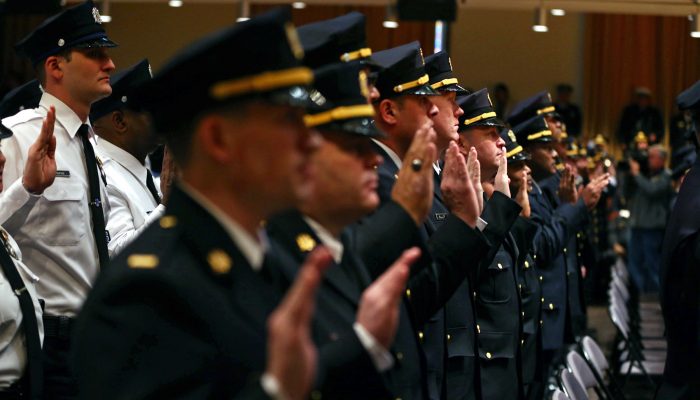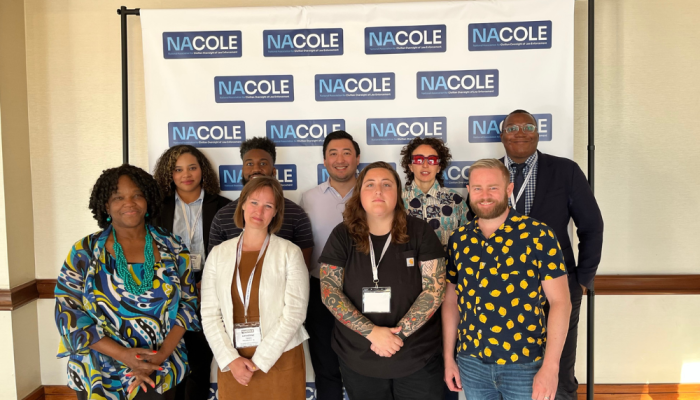- Between 2015 and 2020, 76% of cases were resolved with “training and counseling.” In 2022, only 34.9% of cases were resolved with training and counseling. Training and counseling is also used in much narrower circumstances, which means that more officers are receiving discipline charges for sustained misconduct.
- Impact: PPD has made significant progress in reducing the frequency of this outcome and producing detailed memos for training and counseling.
- Recommendation: PPD should continue working to draft a more comprehensive policy to uniformly address when officers should receive training and counseling
- PBI Charging Factsheet
- A 12% decrease in the average amount of time it takes for a misconduct investigation to move through the investigation and discipline charging processes. The length of time to complete a misconduct investigation has decreased, but remains high. Cases received at PBI in 2022, took 409 days on average to go from the complaint being received at Internal Affairs, through the investigation, reviews, and charging. In 2017, this process took 463 days on average.
- Impact: Survey respondents in Philadelphia reported being significantly less likely to file a complaint if they knew that the investigation and penalty process would take more than one year. They reported being significantly more willing to file if the process took less than six months.
- Recommendation: PPD must continue to find ways to consistently shorten the investigation and discipline process to increase the likelihood that residents will report misconduct.
- Life of a Misconduct Investigation
- Between March 2022 and March 2023, nearly half of scheduled hearings (109 of the 229) did not occur for a variety of reasons, such as further investigation needed, scheduling problems, and additional charges needed.
- 68 hearings occurred, some of which were guilty plea hearings for serious misconduct not eligible for command level discipline during which the PBI boards only recommended discipline.
- The remaining 52 cases were for less serious misconduct resolved with guilty pleas and command level discipline instead of a hearing. These command level discipline resolutions are binding and cannot go to arbitration in the future.
- PBI Hearing Factsheet
- CPOC now advertises when PBI hearings are open to the public so community members can observe them. This information was previously not easily accessible.
- CPOC and PPD will continue to engage in process improvement. There are additional ways to modernize PBI processes that can be explored, such as digitizing voting sheets used during PBI hearings.
Collaborative Review and Reform of the PPD Police Board of Inquiry Part 2 Report: here
Collaborative Review and Reform of the PPD Police Board of Inquiry Part 1 Report: here
CPOC’s Press Release: here
PPD Misconduct Terms:
Complaint Against Police/CAP – Any complaint against a member of the PPD that is initiated by a civilian.
Command Level Discipline – The district/unit Commanding Officer is authorized to offer the offending officer a penalty consistent with their actions and after taking into consideration the officer’s work history, commendations, prior discipline, etc. (PPD Directive 8.6 “Command Level Discipline”)
Internal Affairs Division (IAD) – The Internal Affairs Bureau was established for the purpose of investigating allegations of improper conduct by members of the Police Department. This agency within the Police Department investigates every complaint made by a citizen against police. CPOC currently refers all complaints against police to Internal Affairs; according to CPOC’s legislation, CPOC will eventually investigate complaints via a CPOC Investigations Unit.
Police Board of Inquiry/PBI – After a complaint is investigated by Internal Affairs, any misconduct findings are referred to the Police Board of Inquiry (PBI) for a hearing. The PBI board holds a hearing and sends their recommendation for discipline to the Police Commissioner, who makes the final decisions about discipline.
PBI is a unit at PPD that is comprised of two smaller units, PBI Charging and the Department Advocate. PBI handles discipline charging, discipline plea negotiations, discipline hearings, and discipline record retention for the entire PPD.
PBI Board – A panel of two PPD personnel and one civilian comprises a PBI board during a PBI hearing. The job of the board is to hear from the PPD via the department advocate as to why the officer is guilty, hear from witnesses, and from the accused officer they choose to testify. The PBI Board then decides whether the officer is guilty or not guilty of the misconduct of which they are accused. One of the board members must be of the same rank as the accused.
PBI Charging Unit – This unit has one commanding officer and two support staff. The commanding officer is responsible for applying discipline charges from the PPD discipline code to any sustained allegations of misconduct. The commanding officer has broad discretion to offer training and counseling rather than formal discipline charges for sustained allegations.
PBI Department Advocate – The position within the PBI unit that prosecutes administrative discipline cases on behalf of the PPD. The position is currently held by a PPD lieutenant who is not an attorney. The Department Advocate also arranges administrative plea deals for discipline charges if officers choose to plead guilty.
Sustained Misconduct: The investigation determined the alleged act occurred and was not within PPD policy.




